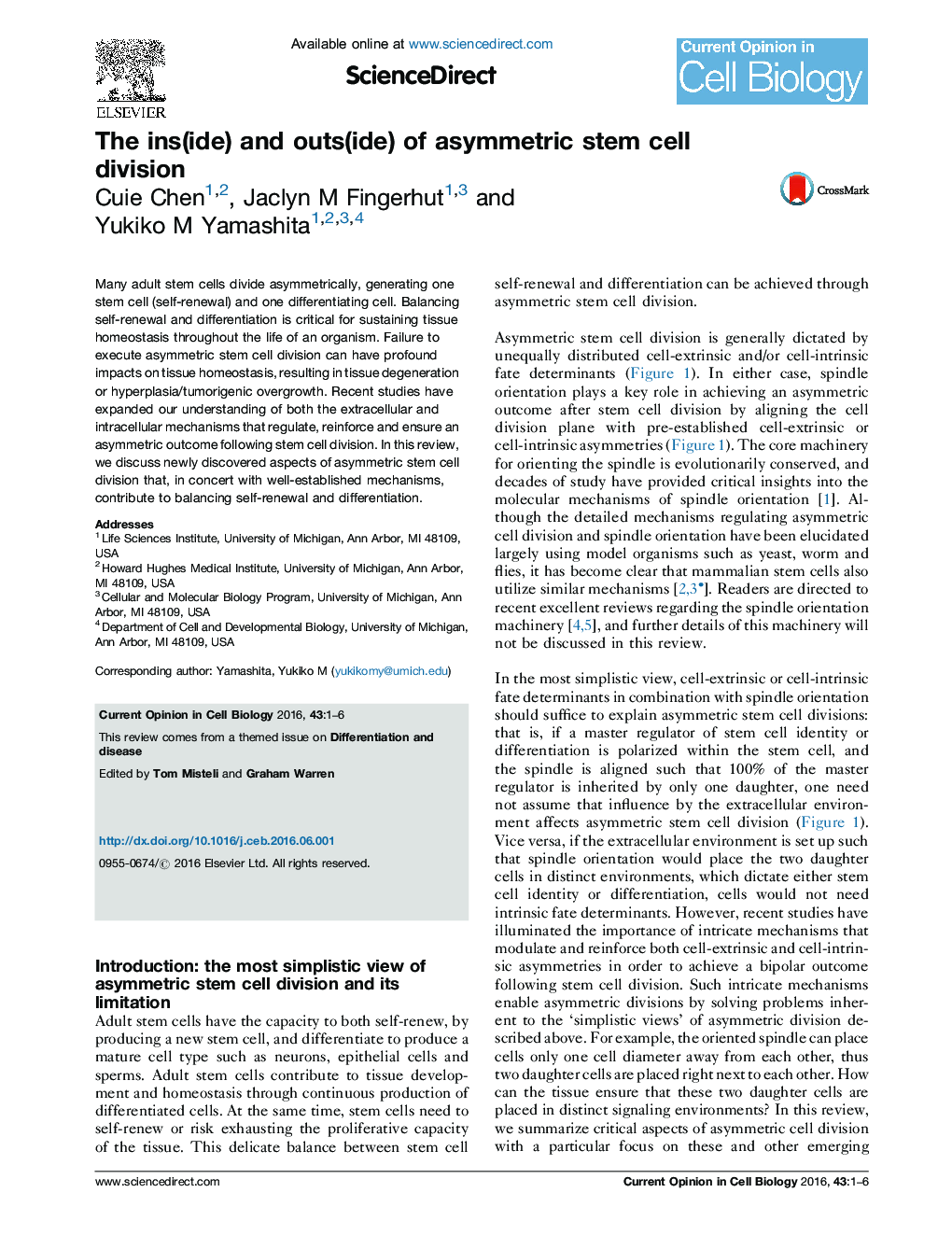| Article ID | Journal | Published Year | Pages | File Type |
|---|---|---|---|---|
| 8465025 | Current Opinion in Cell Biology | 2016 | 6 Pages |
Abstract
Many adult stem cells divide asymmetrically, generating one stem cell (self-renewal) and one differentiating cell. Balancing self-renewal and differentiation is critical for sustaining tissue homeostasis throughout the life of an organism. Failure to execute asymmetric stem cell division can have profound impacts on tissue homeostasis, resulting in tissue degeneration or hyperplasia/tumorigenic overgrowth. Recent studies have expanded our understanding of both the extracellular and intracellular mechanisms that regulate, reinforce and ensure an asymmetric outcome following stem cell division. In this review, we discuss newly discovered aspects of asymmetric stem cell division that, in concert with well-established mechanisms, contribute to balancing self-renewal and differentiation.
Related Topics
Life Sciences
Biochemistry, Genetics and Molecular Biology
Cell Biology
Authors
Cuie Chen, Jaclyn M Fingerhut, Yukiko M Yamashita,
